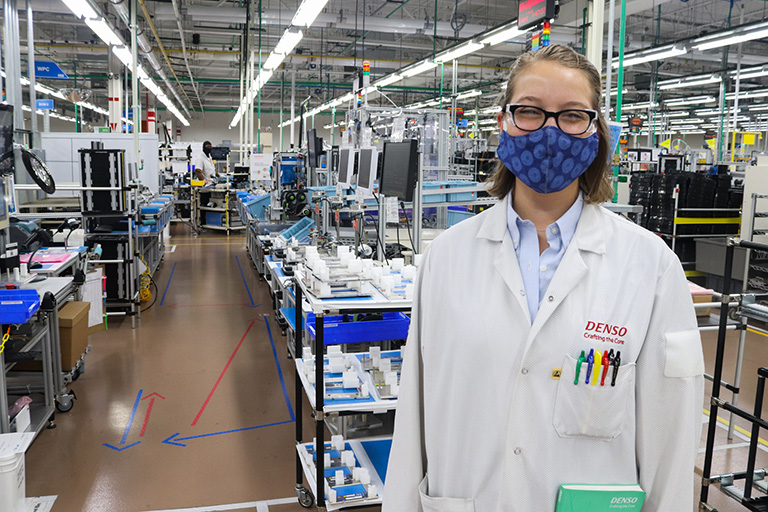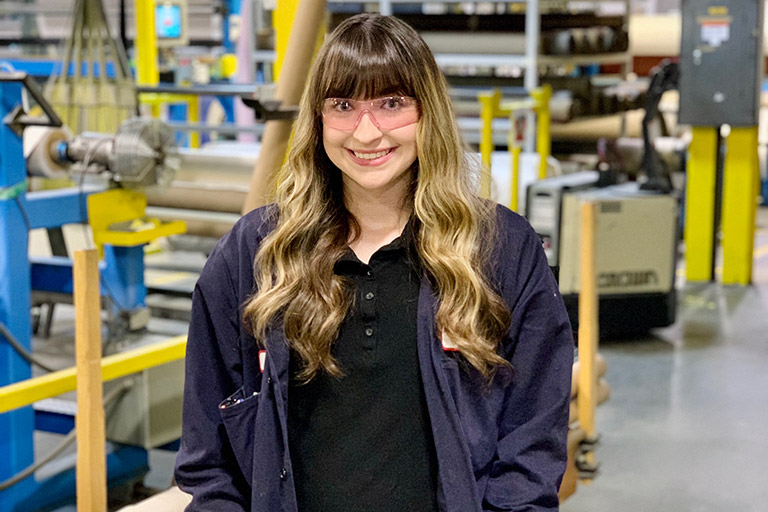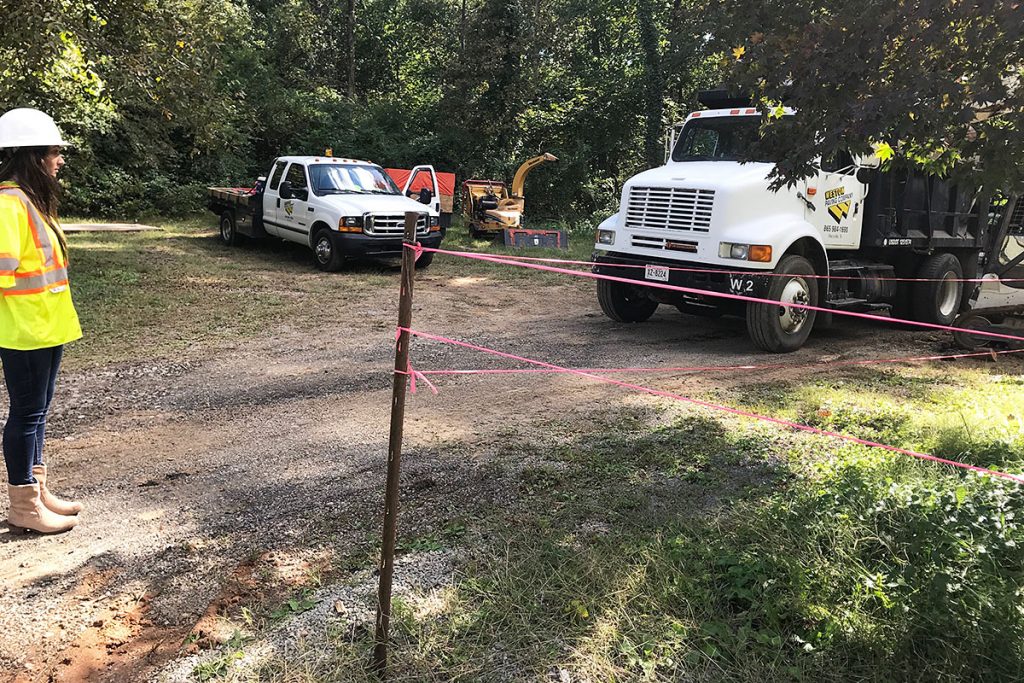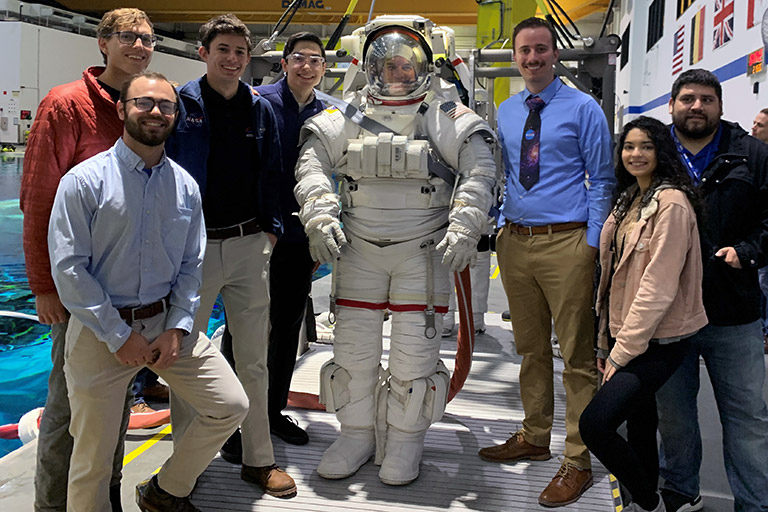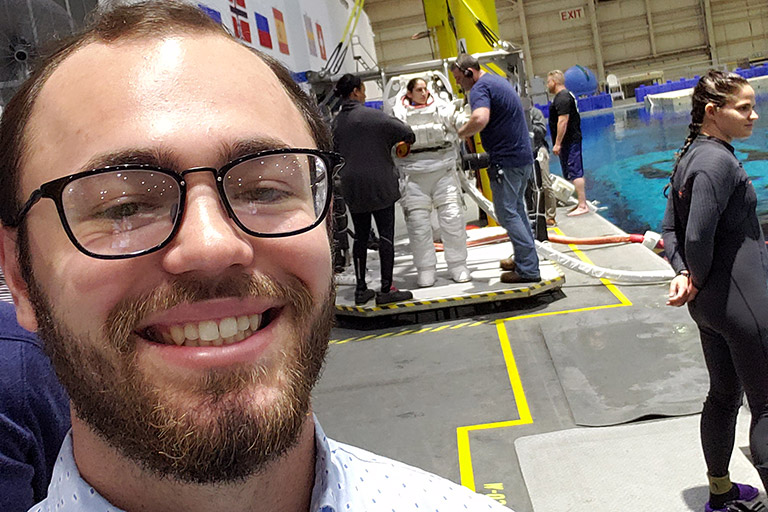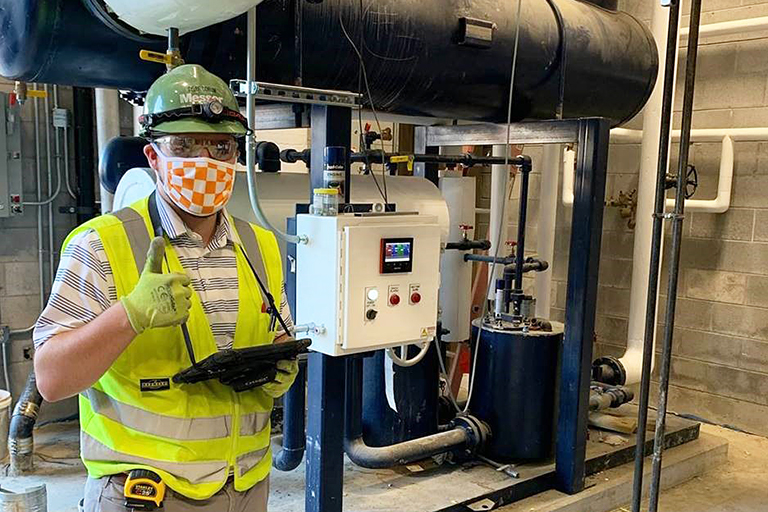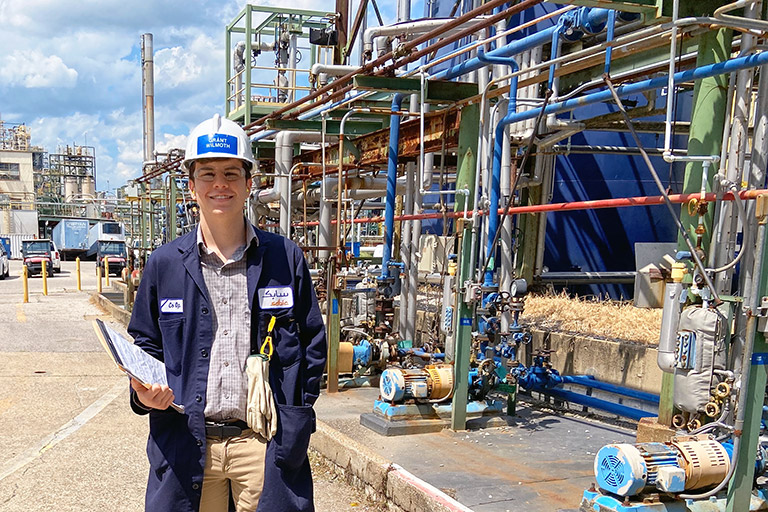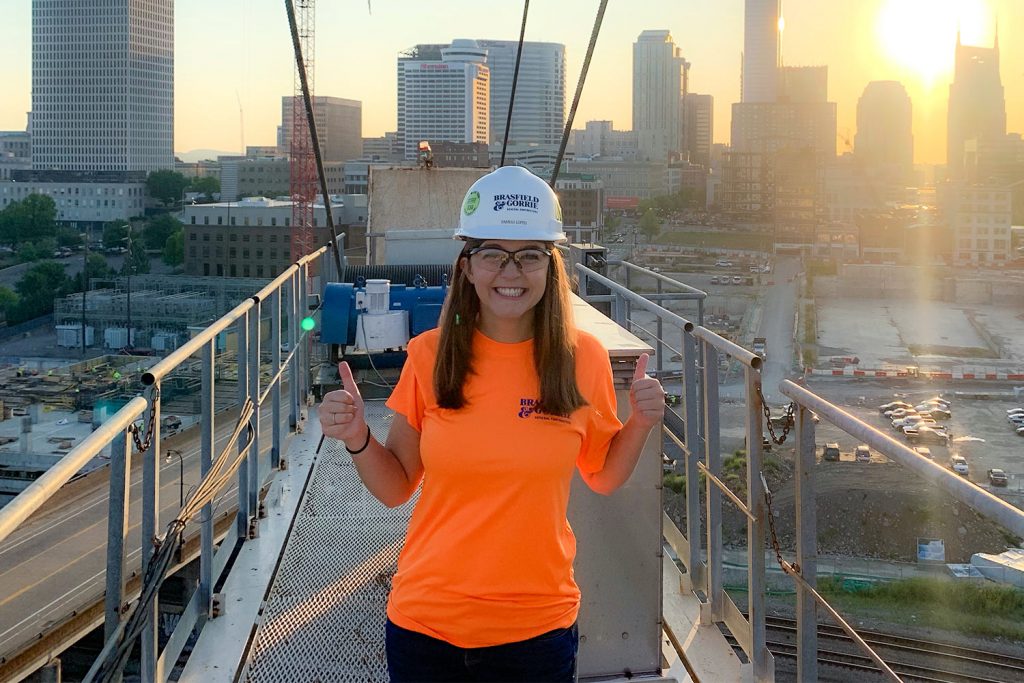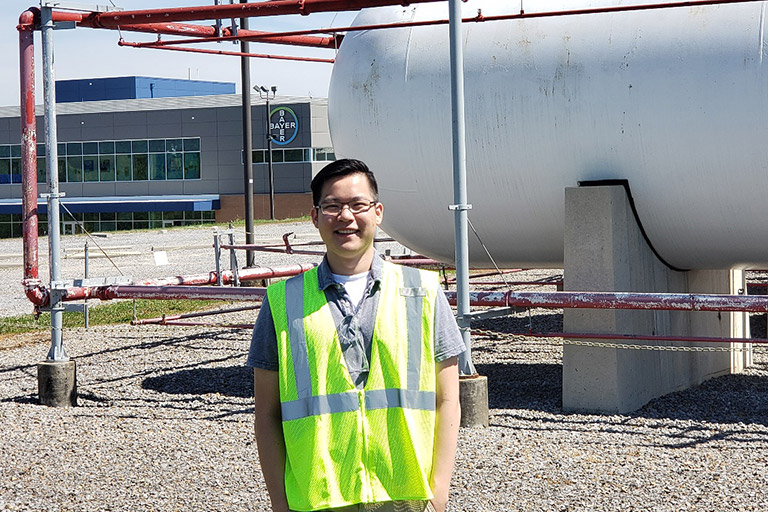Walking into the City of Maryville to begin the first rotation of her co-op, junior Savannah Jobkar was terrified. While she was excited to learn about the field of civil engineering, she was also extremely scared of failure and not being able to reach the level of expectations held for her.
Her fears quickly eased when she realized how inviting, caring, and helpful her supervisors and staff were. Jobkar said her supervisors taught her everything she needed to know on the job and were encouraging, making her co-op a positive experience.
She worked closely with engineers in the stormwater department, performing job activities that were completely new to her, such as reviewing site plans, working on stormwater infrastructure projects, visiting, inspecting, and surveying sites, preparing budgets, responding to citizens’ drainage and traffic complaints, and even collecting and reviewing stream samples.
“Seeing how engineers operate in the field will not only help me with gaining experience for a future career, but will also allow me to apply what I learned to my remaining classes,” she said.
“
This co-op has taught me to break out of my comfort zone and has helped me build confidence within myself that I never had prior.”
—Savannah Jobkar
UT has had a co-op relationship with the City of Maryville for about 15 years.
“Our strategy is to try and make use of two co-op students per semester, one focusing on transportation projects, and the other focused more on stormwater or drainage projects,” said Kevin Stoltenberg, an engineer with the city. “We have had students rotate back and forth between disciplines to get a better feel for what they enjoy working on.”
He also said the students that have come through the program have been from diverse backgrounds and have been hard working and eager to learn and take on challenges.
Students who co-op for Maryville have worked on projects related to traffic studies, estimating costs for construction projects, reviewing development plans, surveying and data collection, drainage improvements, and watershed mapping, among others. Stoltenberg said that this broad range of functions make it a more interesting environment in which to work.
Tickle College of Engineering Director of the Office of Engineering Professional Practice Todd Reeves also talked about how the relationship with the City of Maryville has been very beneficial to college students over the years.
“In the student’s co-op rotations there, they are asked to do very hands-on, meaningful engineering projects that give them a great feel for what engineers do and what type of roles these students might like to pursue in their future,” he said. “These projects enhance their education and, of course, they are getting paid too, so this helps them with the educational expenses as well.”
Over the years, the Maryville has hired three graduates of the co-op program as full time staff, and students often go on to very successful careers with consulting firms and other governmental agencies including TVA, the City of Knoxville, and TDOT.
Sharon Smith, a senior co-op student, worked directly under Stoltenberg, whose mentorship she valued.
“He doesn’t just give me valuable tasks, but he also mentors me through the process of completing them,” she said. “I get opportunities to work independently and on a team, but the work here all contributes to the same goal: serving the growing community.”
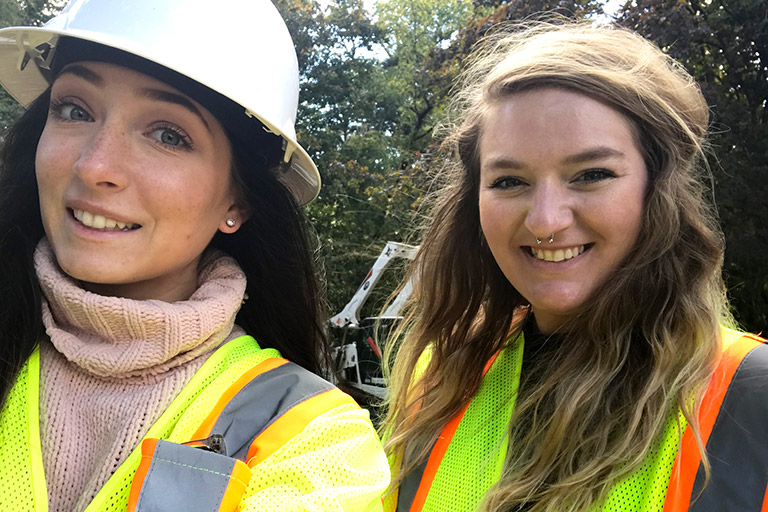
Savannah Jobkar (left) and Sharon Smith
Smith has gotten to participate in the site plan review process in which multiple departments review a plan set submitted by a design engineer. Additionally, she’s conducted traffic counts and analyzed volume data, and she’s documented progress made during construction projects.
“This opportunity has allowed me to finally see and experience the purpose of what I’ve been learning in school,” she said. “Because of the mentorship and inclusion I’ve received, I’ve gained some much needed confidence as an engineering student and junior engineer. I’m beginning to see how pieces of the complex subject of engineering fit together, and I couldn’t have done that on my own or without opportunities to practice.”
Just another example of how co-ops present win-win-win partnerships by benefitting the student, the college, and the client.
